As Western sanctions increased against Russia, the feasibility of the Black Sea Grain Initiative began to diminish, writes Vijay Prashad.
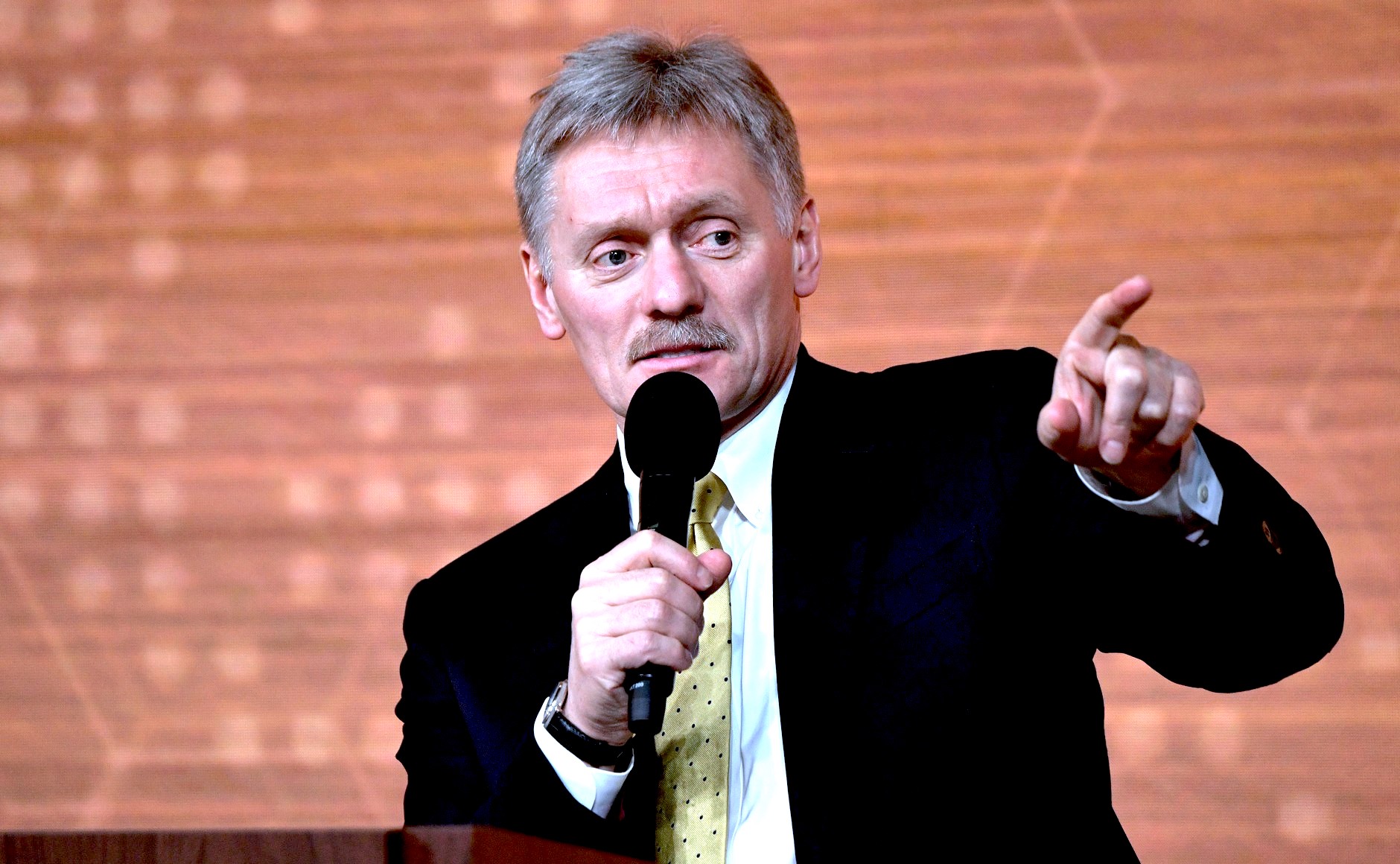
Vladimir Putin’s Spokesman Dmitry Peskov in 2019. (Wikimedia Commons, Kremlin.ru, CC BY 4.0)
By Vijay Prashad
Peoples Dispatch
 On Monday, Dmitry Peskov, the spokesperson for Russia’s President Vladimir Putin, announced, “The Black Sea agreements are no longer in effect.”
On Monday, Dmitry Peskov, the spokesperson for Russia’s President Vladimir Putin, announced, “The Black Sea agreements are no longer in effect.”
This was a blunt statement to suspend the Black Sea Grain Initiative that emerged out of intense negotiations in the hours after Russian forces entered Ukraine in February 2022. The Initiative went into effect on July 22, 2022, after Russian and Ukrainian officials signed it in Istanbul in the presence of the United Nations Secretary-General António Guterres and Turkey’s President Recep Tayyip Erdogan.
Guterres called the Initiative a “beacon of hope” for two reasons. First, it is remarkable to have an agreement of this kind between belligerents in an ongoing war. Second, Russia and Ukraine are major producers of wheat, barley, maize, rapeseed and rapeseed oil, sunflower seeds and sunflower oil, as well as nitrogen, potassic and phosphorus fertilizer, accounting for 12 percent of calories traded.
Disruption of supply from Russia and Ukraine, it was felt by a range of international organizations, would have a catastrophic impact on world food markets and on hunger.
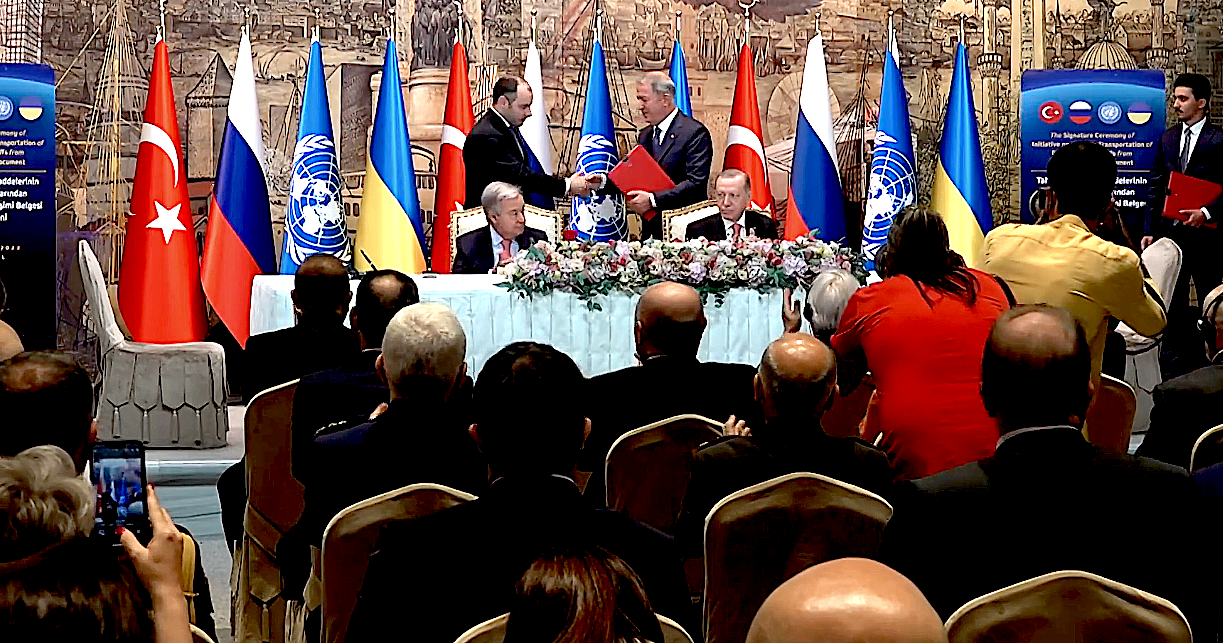
Signing Ceremony of the Black Sea Grain Initiative in Istanbul, July 22, 2022. (Umut Çolak, Voice of America, Wikimedia Commons, Public domain)
As Western — largely U.S., U.K. and European — sanctions increased against Russia, the feasibility of the deal began to diminish. It was suspended several times during the past year. In March, Russia’s Foreign Ministry spokesperson, Maria Zakharova, responding to the sanctions against Russian agriculture, said, “[The main] parameters provided for in the [grain] deal do not work.”
Financialization Leads to Hunger
U.S. Secretary of State Antony Blinken said that his country regrets Russia’s “continued weaponization of food” since this “harms millions of vulnerable people around the world.”
Indeed, the timing of the suspension could not be worse. A United Nations report, “The State of Food Security and Nutrition in the World 2023” (July 12), shows that 1-in-10 people in the world struggles with hunger and that 3.1 billion people cannot afford a healthy diet.
But the report itself makes an interesting point: that the war in Ukraine has driven 23 million people into hunger, a number that pales in comparison to the other drivers of hunger — such as the impact of commercialized food markets and the Covid-19 pandemic.
A 2011 report from World Development Movement called “Broken Markets: How Financial Market Regulation Can Help Prevent Another Global Food Crisis” showed that “financial speculators now dominate the [food] market, holding over 60 percent of some markets compared to 12 percent 15 years ago.”
The situation has since worsened. Sophie van Huellen, who studies financial speculation in food markets, pointed out in late 2022 that while there are indeed food shortages, “the current food crisis is a price crisis, rather than a supply crisis.”
The end of the Black Sea Grain Initiative is indeed regrettable, but it is not the leading cause of hunger in the world. The leading cause — as even the European Economic and Social Committee agrees — is financial speculation in food markets.
Why Did Russia Suspend the Initiative?
To monitor the Black Sea Grain Initiative, the United Nations set up a Joint Coordination Centre (JCC) in Istanbul. It is staffed by representatives from Russia, Turkey, Ukraine and the United Nations. On several occasions, the JCC had to deal with tensions between Russia and Ukraine over the shipments, such as when Ukraine attacked Russia’s Black Sea Fleet — some of whose vessels carried the grain — in Sevastopol, Crimea, in October 2022.
Tensions remained over the initiative as Western sanctions against Russia tightened, making it difficult for Russia to export its own agricultural products into the world market.
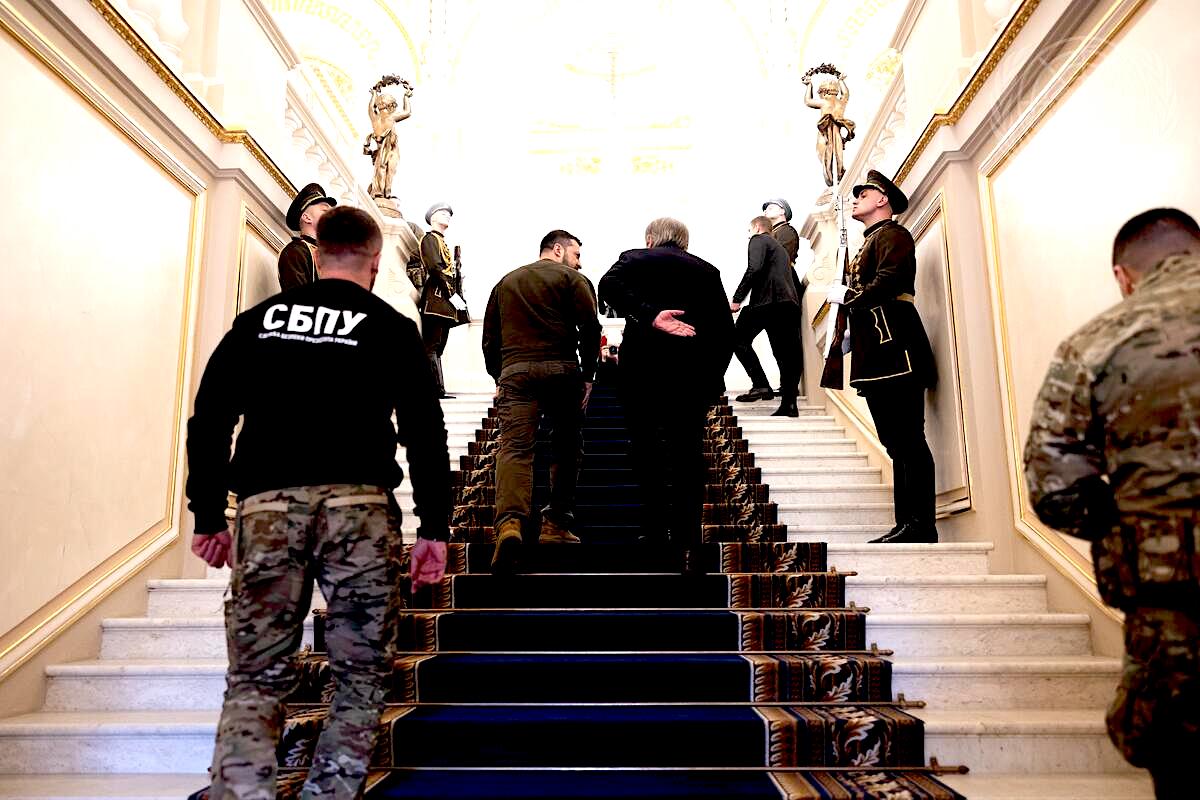
U.N. Secretary-General António Guterres, center right, with Ukraine’s President Volodymyr Zelensky, center left, in Kiev in March to negotiate the the continuation of the Black Sea Grain Initiative. (UN Photo/Vitalii Ukhov)
Russia put three requirements on the table to the United Nations regarding its own agricultural system.
First, the Russian government asked that the Russian Agricultural Bank — the premier credit and trade bank for Russian agriculture — be reconnected to the SWIFT system, from which it had been cut off by the European Union’s sixth package of sanctions in June 2022.
A Turkish banker told TASS that there is the possibility that the European Union could “issue a general license to the Russian Agricultural Bank” and that the Bank “has the opportunity to use JP Morgan to conduct transactions in U.S. dollars” as long as the exporters being paid for were part of the Black Sea Grain Initiative.
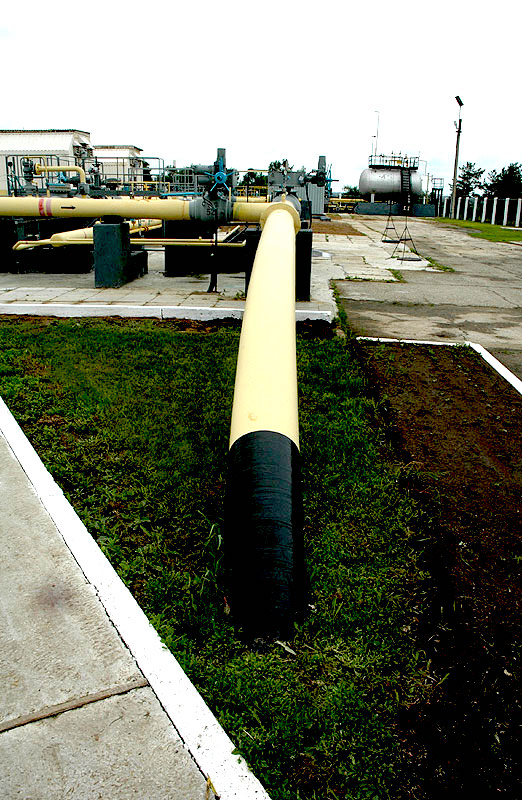
Section of the ammonia pipeline running from Tolyatti, Russia, to Odessa, Ukraine. (Azh7, Wikimedia Commons, CC BY-SA 2.5)
Second, from the first discussions about the Grain Initiative, Moscow put on the table its export of ammonia fertilizer from Russia both through the port of Odessa and of supplies held in Latvia and the Netherlands.
A central part of the debate has been the reopening of the Togliatti-Odessa pipeline, the world’s longest ammonia pipeline.
In July 2022, the U.N. and Russia signed an agreement that would facilitate the sale of Russian ammonia on the world market.
The U.N.’s Guterres went to the Security Council to announce,
“We are doing everything possible to … ease the serious fertilizer market crunch that is already affecting farming in West Africa and elsewhere. If the fertilizer market is not stabilized, next year could bring a food supply crisis. Simply put, the world may run out of food.”
On June 8, Ukrainian forces blew up a section of the Togliatti-Odesa pipeline in Kharkiv, increasing the tension over this dispute. Other than the Black Sea ports, Russia has no other safe way to export its ammonia-based fertilizers.
Third, Russia’s agricultural sector faces challenges from a lack of ability to import machinery and spare parts and Russian ships are not able to buy insurance or enter many foreign ports. Despite the “carve-outs” in Western sanctions for agriculture, sanctions on firms and individuals have debilitated Russia’s agricultural sector.
To counter Western sanctions, Russia placed restrictions on the export of fertilizer and agricultural products. These restrictions included the ban on the export of certain goods (such as temporary bans of wheat exports to the Eurasian Economic Union), the increase of licensing requirements (including for compound fertilizers, requirements set in place before the war), and the increase of export taxes.
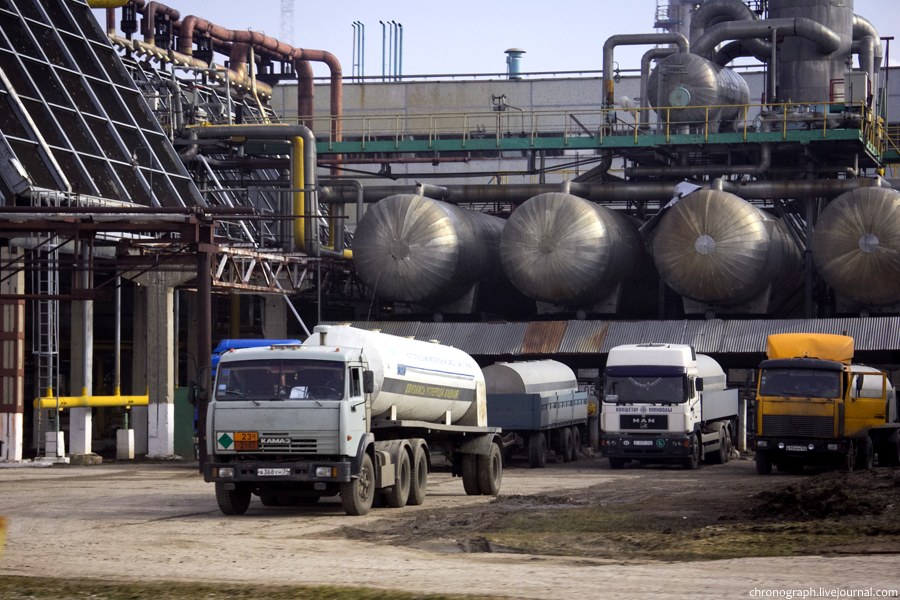
Togliattiazot nitrogen plant in Togliatti/Tolyatti, Russia, 2012. (Vadim Kondratiev, Wikimedia Commons/CC BY-SA 3.0)
These Russian moves come alongside strategic direct sales to countries, such as India, which will re-export to other countries.
In late July, St. Petersburg will host the Second Russia-Africa Economic and Humanitarian Forum, where these topics will surely be front and center.
Ahead of the gathering, Putin called South Africa’s President Cyril Ramaphosa to inform him about the problems faced by Russia in exporting its food and fertilizers to the African continent. “The deal’s main goal,” he said of the Black Sea Grain Initiative, was “to supply grain to countries in need, including those on the African continent, has not been implemented.”
It is likely that the Black Sea Grain Initiative will restart within the month. Earlier suspensions have not lasted longer than a few weeks. But this time, it is not clear if the West will give Russia any relief on its ability to export its own agricultural products.
Certainly, the suspension will impact millions of people around the world who struggle with endemic hunger. Billions of others who are hungry because of financial speculation in food markets are not impacted directly by these developments.
Vijay Prashad is an Indian historian, editor and journalist. He is a writing fellow and chief correspondent at Globetrotter. He is an editor of LeftWord Books and the director of Tricontinental: Institute for Social Research. He is a senior non-resident fellow at Chongyang Institute for Financial Studies, Renmin University of China. He has written more than 20 books, including The Darker Nations and The Poorer Nations. His latest books are Struggle Makes Us Human: Learning from Movements for Socialism and, with Noam Chomsky, The Withdrawal: Iraq, Libya, Afghanistan and the Fragility of U.S. Power.
This article is from Peoples Dispatch.
The views expressed are solely those of the author and may or may not reflect those of Consortium News.

War always hurts the climate. Consider the ’emissions’ from a jet fighter on full afterburner. Or of a massive tank that burns jet fuel to get the power to move. Convoys of trucks carry the weapons of destruction to the soldiers at the front. Convoys of trucks carrying the fuel for the tanks and planes, and also for the trucks to allow them to carry them the fuel. And that’s even before they start burning the greenhouse gas wells or blowing up the greenhouse gas pipelines. War is a very dirty business.
If the Democrats want to fight a ‘Green War’, they need to go back to renewable bows and arrows.
If you care about the environment, you must oppose war.
“We Lie. We Cheat. We Steal.” — Mike Pompeo
They should print that as a motto on the US Dollar.
A god review of Norman Soloman’s new book, War Made Invisible” on Truthout gets to the nitty-gritty of the neocon/military industry takeover of media and the government as well as the reality and costs of endless war
Continuing to expand the silk road will fix much.
Beyond the grain deal and world hunger, this CIA proxy war has had a devastating climate impact with the Nordstream sabotage releasing tens of thousands of tons of methane into the atmosphere. This action likely pushed the global climate over the edge as we move rapidly toward another thermal maximum which will devastate agriculture, collapse civilization and exacerbate extinctions, likely including humans.
War in the modern era is suicide for humanity. We need to return to an older understanding of the living world and our place in it.
We need a movement based on ending the corporate gangsterism of the modern nation state with its delusions of competitive hegemony and based on loyalty only to a living earth.
I agree 100%, so should any sane person.
For at least the past 5 Precedential administrations the use of sanctions, embargoes, and tariffs increased dramatically. And of course what is usually described as American sanctions really means nearly all countries participating because they feared if they didn’t participate they would be next on the “American” sanctions list. It is not an overstatement to say that the United States became the worlds mafia.
And then, along came Russia. Of all countries in world that has everything needed to survive on its own, it’s Russia. Their living standard would be diminished, but not wrecked like many others.
The entire world will be better off when the BRICS present an alternative to the US/EU alliance. And that includes, after an adjustment period, the United States and Europeans.
At the moment, the thought of not being able to issue effective sanctions across the globe scares the hell out of the Uniparty in DC.
i don’t think that the black sea grain initiative will restart any time soon. other ways have to be found to get the russian agricultural products to the needy. any involvement with western and nato-aligned states is a dead end. russia offered to give fertilizer locked in european ports to the needy for free, the europeans didn’t allow it.
The Biden government with sanctions weaponized energy, food, medicine, and American politics caused so much hunger and misery.
To accuse Russia of causing hunger and starvation is an audacity.